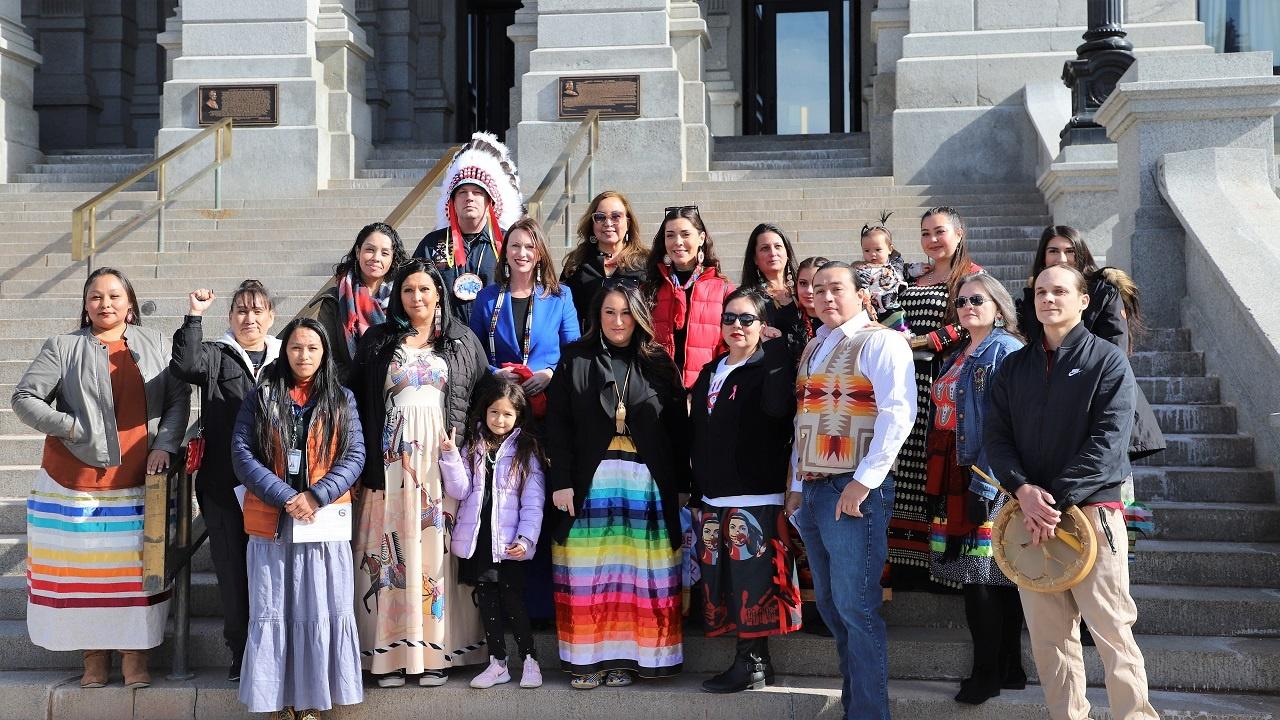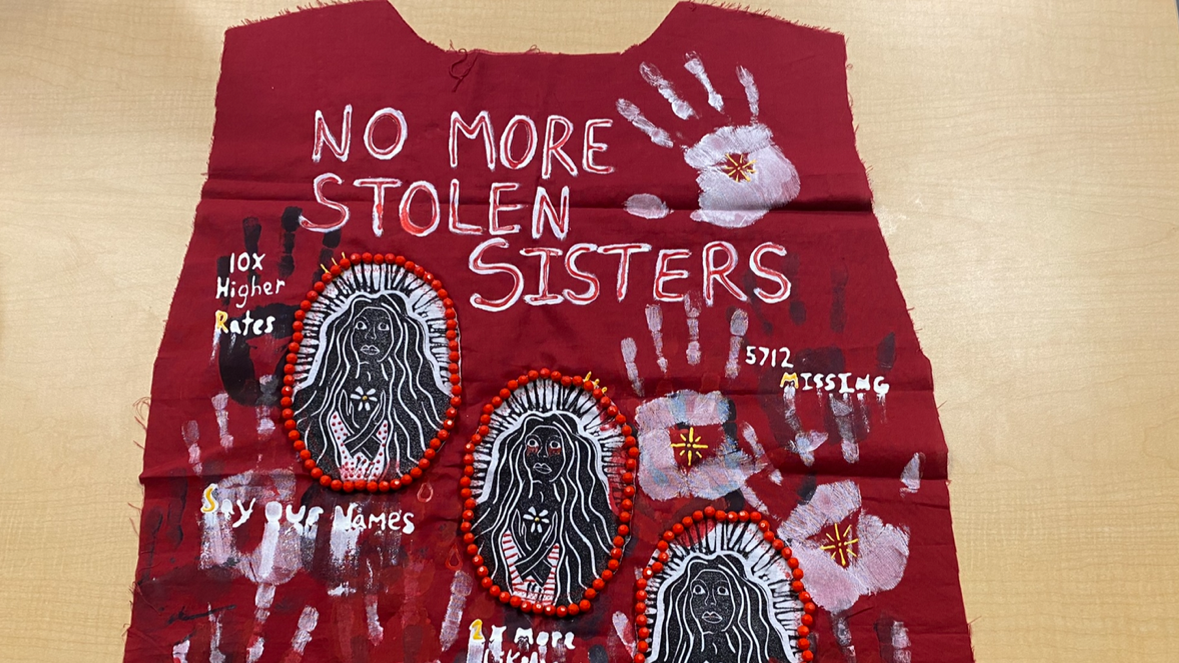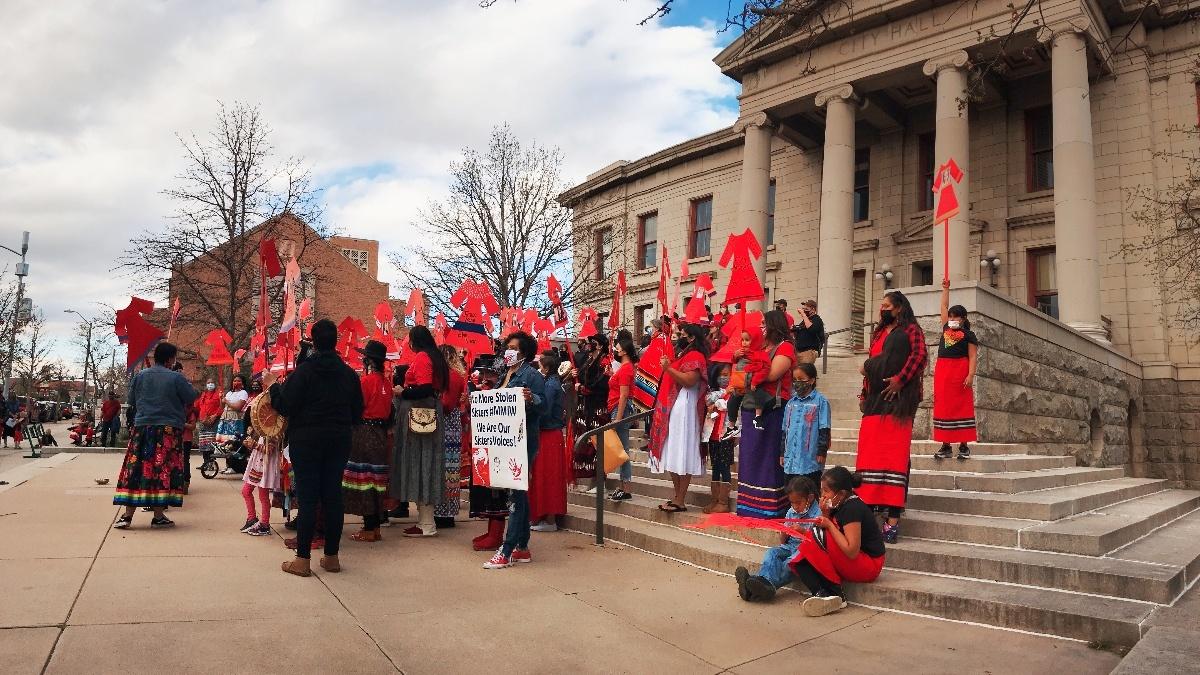Final update:
Governor Jared Polis has signed a bill that would bolster the Office of Liaison for Missing and Murdered Indigenous Relatives in Colorado.
Senate Bill 23-054 directs the office to conduct case reviews and publish a report annually about any violent or exploitive crimes against an Indigenous person, fill a position with a representative of the Indigenous community on the sentencing reform task force, collaborate with Indigenous-led organizations and the Colorado district attorneys' council to provide training for victim advocates and designate an employee as a point of contact for families in need. This new bill also establishes a 24-hour phone line which would expand on availability — something bill supporters said could be improved on from the current system.
May 11, 2023 update:
Governor Jared Polis has not indicated whether he supports a bill that would expand on MMIR — the Office of Liaison for Missing and Murdered Indigenous Relatives in Colorado. The number of unsolved murders and missing person cases of indigenous people in North America continues to be a growing crisis, especially among women and girls.
According to the Urban Indian Health Institute which gathered and assessed data across71 cities in the United States in 2017, the lack of data and cohesive reporting by law enforcement have been main obstacles in solving cases. The Institute found there were 5,712 Missing, Murdered Indigenous Women and Girls cases reported in 2016 and only 116 of them were logged in the Department of Justice database.
The Office of Missing and Murdered Indigenous Relatives in Colorado was established in 2022 after the a bill passed in the previous legislative session. So far, the office, along with the MMIR of Colorado Task Force, launched a Missing Indigenous Persons Alert system. The alert system notifies local and statewide agencies of a reported missing Indigenous person in hopes this one-step process will help solve more cases.
Senate Bill 23-054 directs the office to conduct case reviews and publish a report annually about any violent or exploitive crimes against an Indigenous person, fill a position with a representative of the Indigenous community on the sentencing reform task force, collaborate with Indigenous-led organizations and the Colorado district attorneys' council to provide training for victim advocates and designate an employee as a point of contact for families in need. This new bill also establishes a 24-hour phone line which would expand on availability — something bill supporters said could be improved on from the current system.
This bill recently passed through the Colorado House and Senate, both approving amendments that bill sponsor, Democratic State Senator Jessie Danielson of Jefferson County, said made the bill even stronger. Danielson also said the bill is supported by the tribal councils representing the two sovereign nations in Colorado, the Southern Ute Indian Tribe and the Ute Mountain Ute Tribe.
According to the MMIR task force, a group of advocates to bring awareness to MMIR in Colorado, there are more than 80 cases in Colorado. Their list includes current missing Indigenous children and adults, unsolved murders and murdered relatives. It also includes a short list of unidentified bodies found in Colorado that the task force suspects might be Indigenous people and one case of a person whose cause of death hasn't been determined yet.
Danielson told Rocky Mountain PBS she hopes Governor Jared Polis, a Democrat, has changed his mind about the bill. She said she heard at the beginning of the session that he wasn't in support of the bill.
Conor Cahill, press secretary for the governor, provided this statement to Rocky Mountain PBS: "The Governor will review this bill just as he does all bills as it makes its way to his desk. The Polis-Primavera administration is committed to continuing to address this critical issue and ensuring the success of the Office of MMIR."
The governor has 30 days to take action on the bill. He recently signed two bills Danielson also sponsored: SB23-211 Federal Indian Child Welfare Act Of 1978 and SB23-202 Wearing Of Native American Traditional Regalia.





